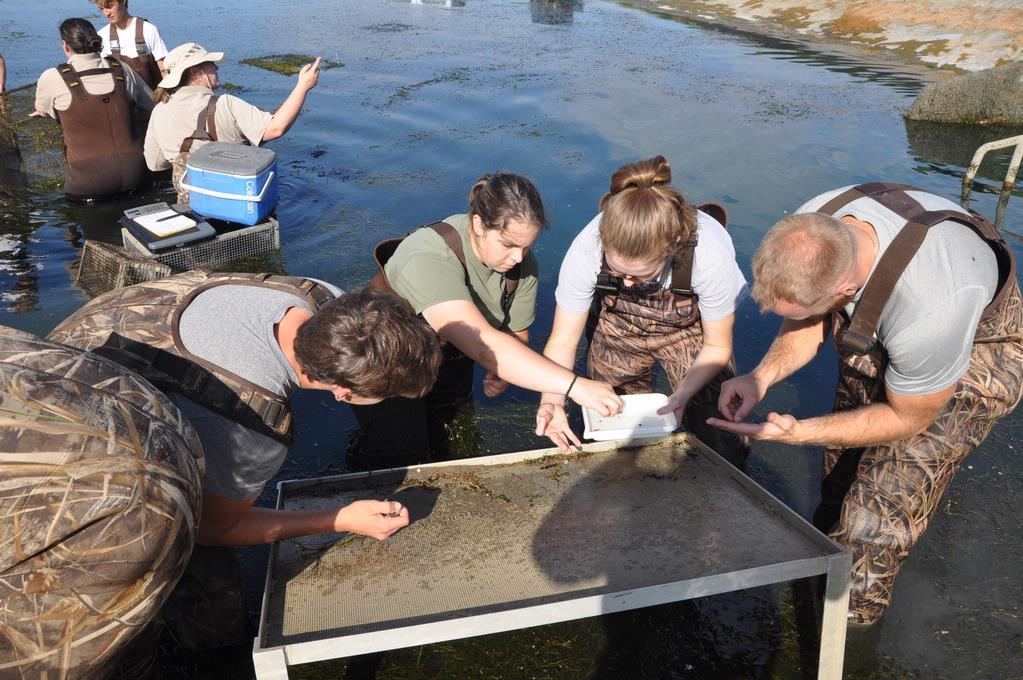By Doug Aloisi, Genoa NFH

As fall is upon us, the growing season for fish and mussels is quickly coming to a close. This is when ponds at Genoa National Fish Hatchery (NFH) are drained and fish and mussels are either placed in their winter homes for continued grow out at the hatchery, or released into their wild habitats.
This season the staff at Genoa NFH were trying to determine the best water quality and fertilization schemes to rear both fish and freshwater mussels in two hatchery ponds. 24 hour monitoring equipment was acquired and two seasonal employees were tasked with taking daily and weekly water quality measurements. Our mussel biologists, Megan and Beth took measurements of food particles throughout the growing season.
In early June largemouth bass with Fat Mucket mussel larvae attached to their gills were placed in propagation cages in two similar sized ponds. Ponds were fertilized weekly dependent on healthy water quality parameters. This week the ponds were harvested and cages were carefully checked for mussels. At just over three months old the mussels could be hard to find but with the help of the Prairie du Chien Advanced Placement High School Biology class, partners from the Iowa DNR, and some of our trusted volunteers the harvest was bountiful. Over 35,400 juvenile Fat Muckets were removed from the cages and we began their distribution for further grow out this winter.
This is exciting news for us as rearing mussels co-located in fish ponds would save us many hours of transportation. It would also save us the uncertainty of uncontrollable variables such as high water and cage siltation in the natural environment. We still have yet to try these methods on other species that may have more challenging culture and water quality requirements. However we are optimistic that the results are repeatable with careful pond monitoring and course corrections throughout the growing season.
